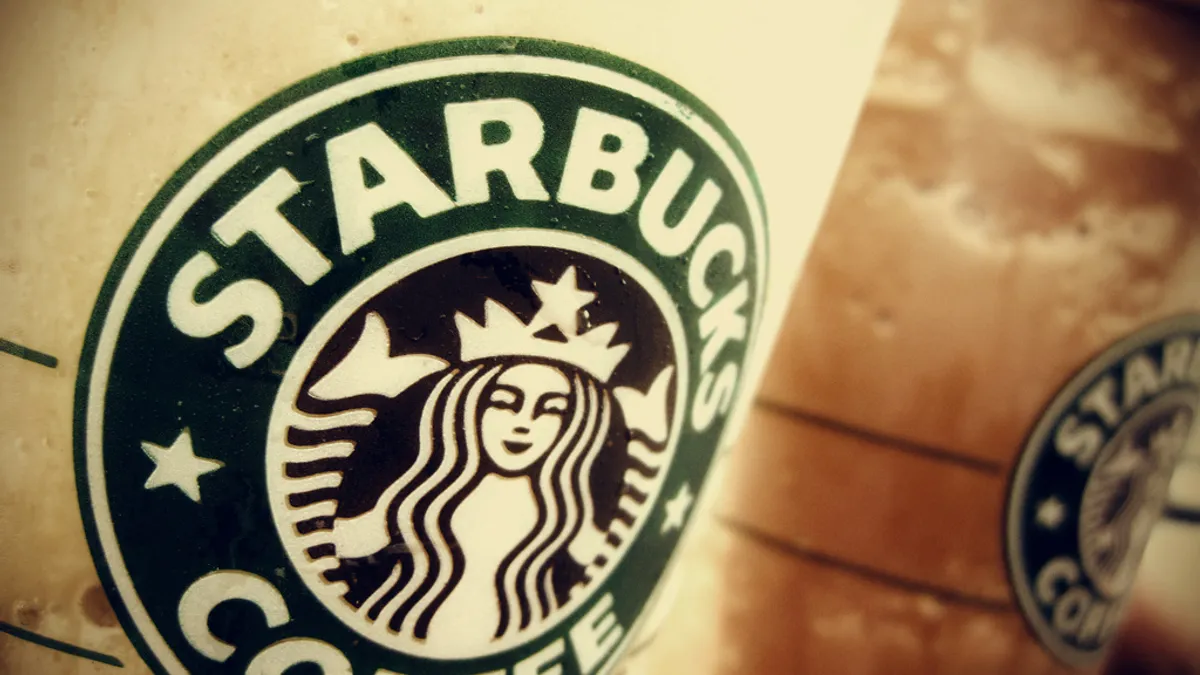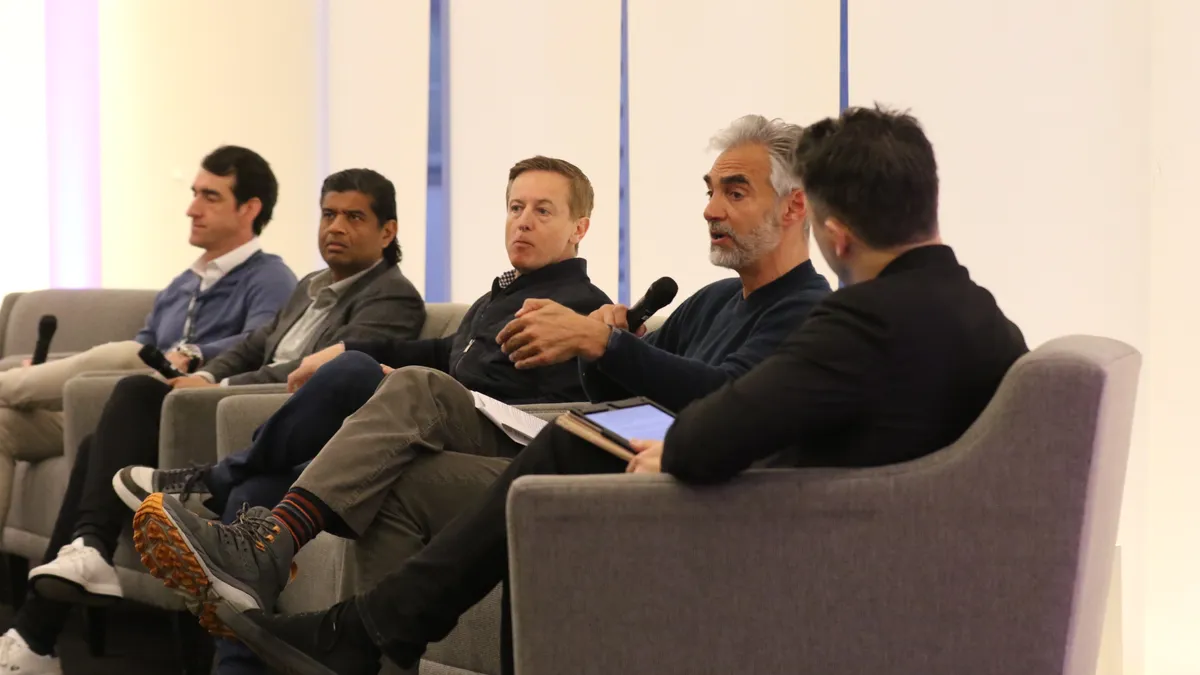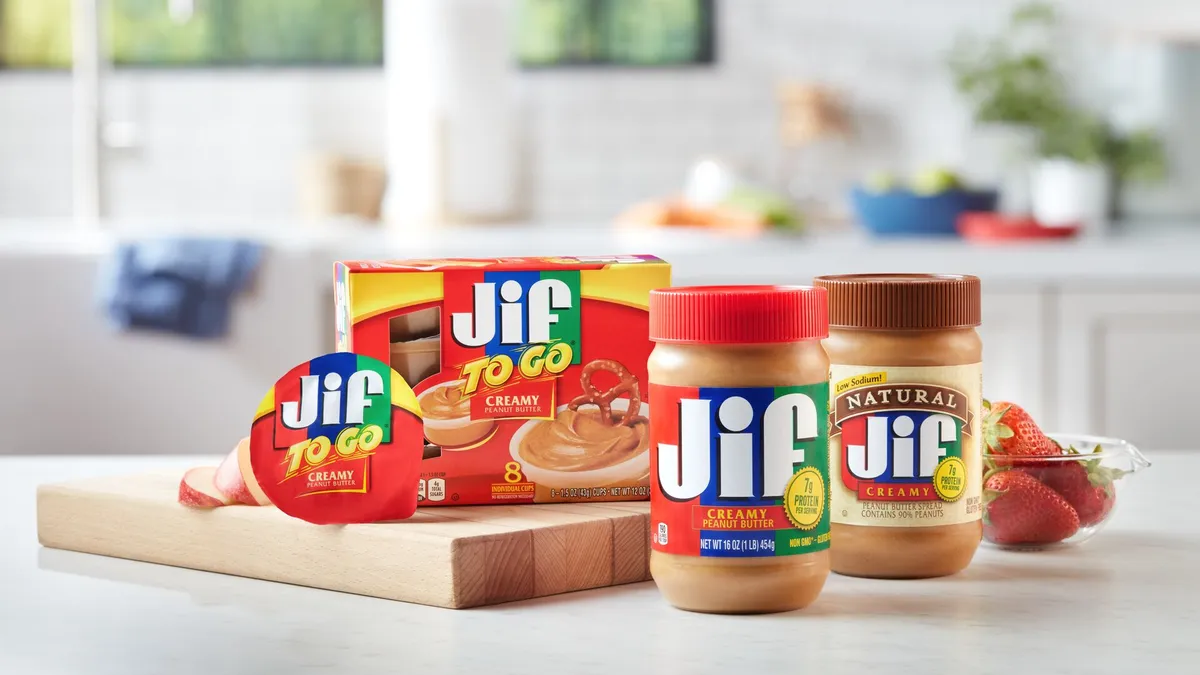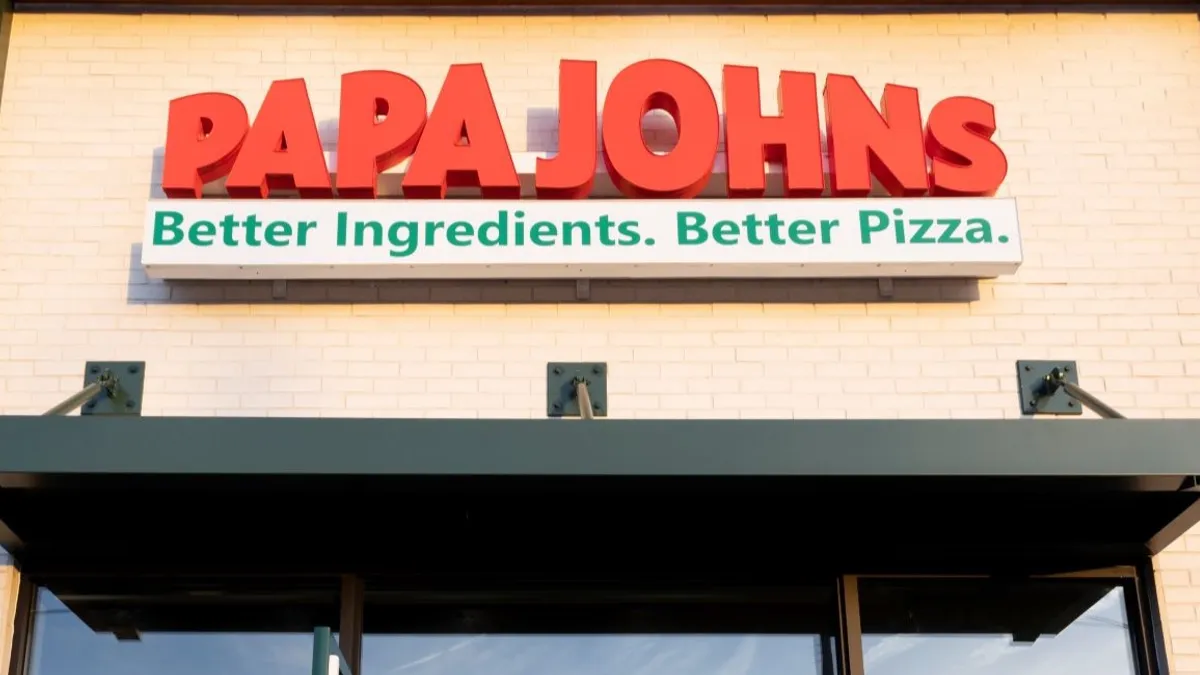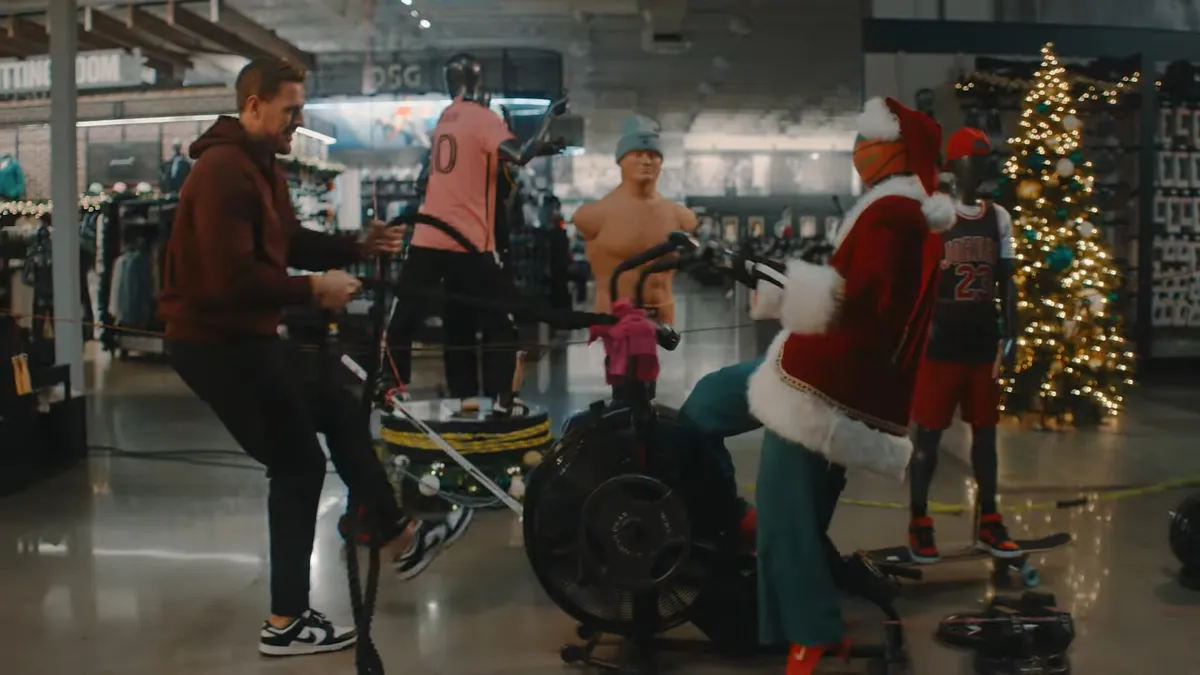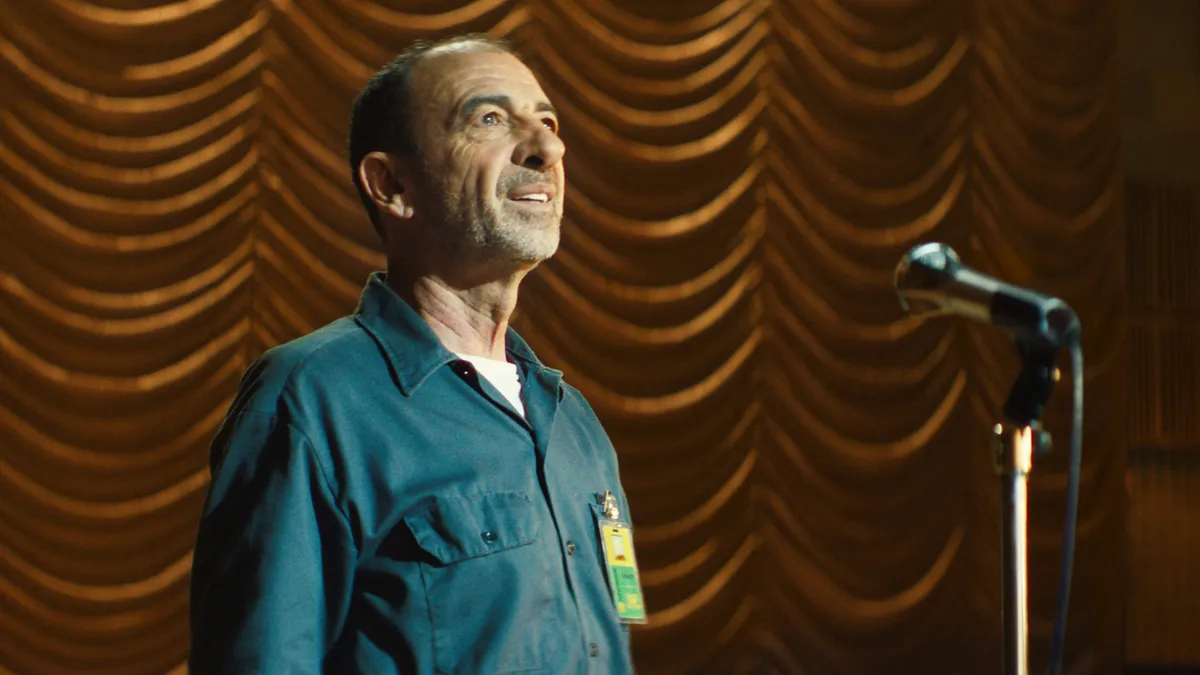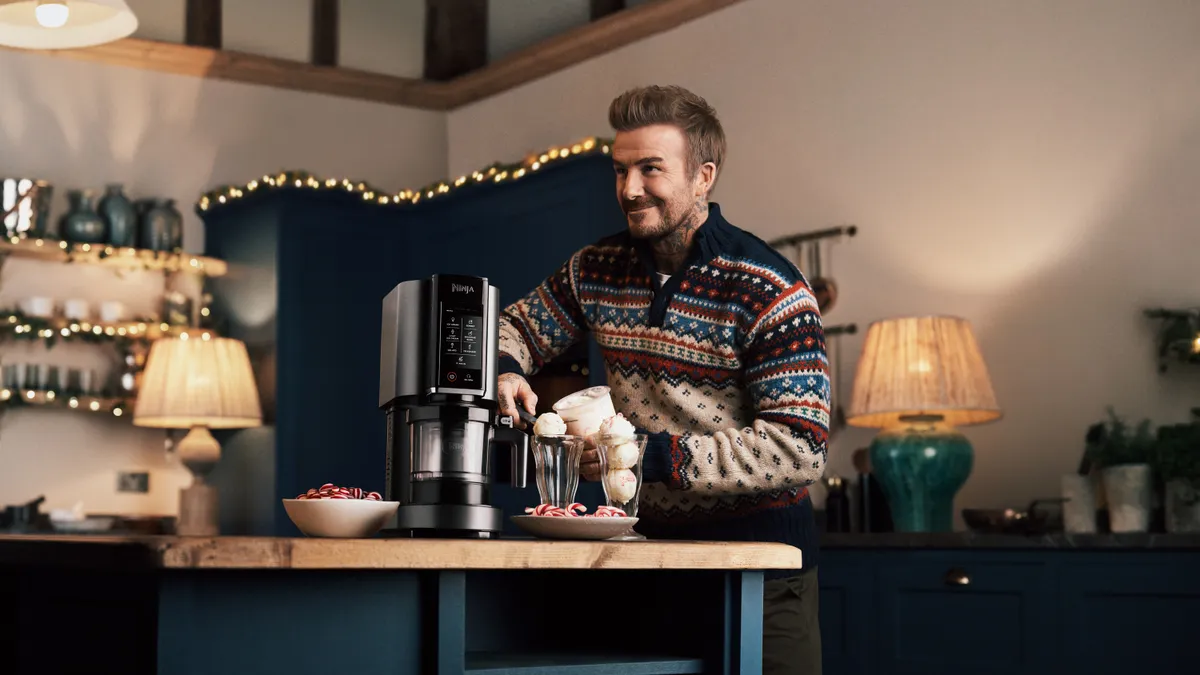Public support of Black Lives Matter has spiked in the wake of mass protests over the police killing of George Floyd, and marketers have quickly chimed in, with companies from Nike to Fruit by the Foot making bold statements backing the cause. It's an understandable instinct to follow in an era where brand purpose carries a high premium, but the sensitivity of the topic also comes with steeper risks that could undercut the message of companies that have worked hard to establish a progressive image, creating long-lasting damage.
"Right now, it's like the house is on fire, so it's all hands on deck," Courtney McKenzie Newell, founder and CEO of Crowned Marketing & Communications, told Marketing Dive in a phone interview. "There's no time to wait with what's going on — it really does require immediate attention."
An outpouring of ads tackling racial tensions in recent weeks has been followed by fresh scrutiny into corporate practices, with activists and media digging into where brands donate their money and how they treat their employees. Marketers' desire to meet a volatile moment on a fast timetable has in some cases backfired, as it's revealed internal behavior does not line up with messaging being promoted to consumers.
Perhaps no brand is more emblematic of this tension than Starbucks. Typically associated with a progressive image, the coffee chain experienced intense backlash after BuzzFeed News reported earlier in June that the company would ban employees from wearing Black Lives Matter T-shirts, pins and accessories. The move was intended to prevent incidents of violence, but read to many as hypocritical given Starbucks' social media professions around supporting the cause. The brand quickly reversed the decision after online outcry, manifested in a viral #BoycottStarbucks hashtag, and actually introduced its own Black Lives Matter apparel as an olive branch.
"We see you. We hear you. Black Lives Matter. That is a fact and will never change," the company said in a statement at the time. "This movement is a catalyst for change, and right now, it's telling us a lot of things need to be addressed so we can make space to heal."
The almost overnight turn in Starbucks' stance was the right step, Newell said, but the fact that the company had to pivot at all exposes a lack of readiness on a topic that the marketer should've been better prepared to address. Other brands have already been through the same ringer, including Taco Bell, which last week landed in similar hot water and eventually apologized after an employee was fired for wearing a Black Lives Matter mask in a viral video. More so than ever before, diverse consumer groups like millennials and Gen Z are treating causes like Black Lives Matter as an imperative, giving brands only so many chances to get race right before trust collapses and people start spending their dollars elsewhere.
"For Starbucks, specifically, it's not about coffee, it's about a lifestyle," Newell said. "Especially when you're targeting millennials and multicultural audiences, you have to be thinking about what it is that they expect from the brands that they are supporting."
Strike two
Starbucks' employee guidance on Black Lives Matter might've read as egregious given the chain's past missteps around race. Just two years ago, the brand found itself in the spotlight after two Black men were arrested at a Philadelphia location for not making a purchase while waiting for a friend to arrive, an incident widely characterized as racial profiling, as reported in HR Dive.
"In situations like Starbucks', it can be perceived as a pattern," Newell said. "When it comes to patterns of bad behavior, you naturally have more scrutiny."
After the 2018 controversy, Starbucks took considerable steps to better its handling of race-related issues, closing all of its more than 8,000 U.S. stores to provide anti-bias training for employees. That Starbucks made such comprehensive changes but still missed the mark earlier this month suggests the message did not stick at the top with the decision-makers guiding policy.
"This is basically their second strike," Newell said.
It could be a more substantial one.
Brands have previously weathered outrage cycles without damaging their businesses — Starbucks was certainly not worse for wear after the Philadelphia scandal — but the current moment could be different. For one thing, brands, and especially restaurant brands, are under immense pressure due to the coronavirus pandemic, which has shuttered locations en masse. Starbucks plans to close up to 400 stores in the U.S. and Canada over the next 18 months, CNN reported, while accelerating its digital transformation initiatives to focus more on mobile pickup and delivery, as outlined in a plan released June 10.
Secondly, the parallel protest movement is resulting in real change in corporate governance, with brands and agencies alike pledging to diversify their executive teams and donating substantially to causes that support Black Americans. Internal shifts are the most meaningful way to ensure that marketing messages actually match up with company behavior and do not come off as tone-deaf to consumers, per Newell.
"If you are expecting to get Black dollars, then you are also expected to make a statement and make some serious change within the organization," Newell said. "Not just Black people, but also allies are looking and watching. [They're] expecting brands to really take a stand and be more human and not just think about the bottom line."
Just 15% of Starbucks' senior leadership and one-third of vice presidents are people of color, according to data shared on its website. Starbucks did not respond to Marketing Dive's request for comment on its future initiatives around Black Lives Matter.
Disaster mode
Even if the degree of ire recently slung at Starbucks was amplified due to the brand's history, other marketers should still take note of the fallout. Many companies now proudly voicing support of Black Lives Matter would not have touched the topic just a few weeks ago, setting them up for blowback that established purpose-driven pioneers may avoid.
"Brands that were aware and where this wasn't new to them — brands like Ben & Jerry's, brands like Nike — they're not having an issue with it," Newell said. "It's the brands that were completely oblivious to this."
The dissonance is one consumers are growing aware of, even as they put greater pressure on companies to speak out. The resulting dual expectations — of both responding to the social justice movement right now, while also making large systematic changes — are considerably high, and could realign priorities for marketers accustomed to longer lead times with their media plans.
"It's dizzying, and it's a lot to puzzle through with no time to do it in," Kendra Clarke, VP of data science and product development for Sparks & Honey, said in emailed comments to Marketing Dive. "Moments like this, you have to hope that your brand values help ground you, because there is inevitably a lot of decision making using the best information you have available to you."
In terms of beginner steps brands can take, Newell pointed to making statements on social media platforms, where groups like Black Lives Matter continue to gain traction. Similarly, executives can share testimonies around the actions they're taking to evolve their brands from the inside.
"Going forward, it's almost like crisis communications," Newell said. "Typically, you would have to have the pre-planned [strategy], but now we're in disaster mode.
Broadly speaking, there likely isn't a one-size-fits-all roadmap to a complex issue.
"This is a moment where we need to approach things with the understanding that this is not a single statement, but it's an ongoing journey," Clarke said. "Planning to change course will almost become necessary as things continue to evolve."



